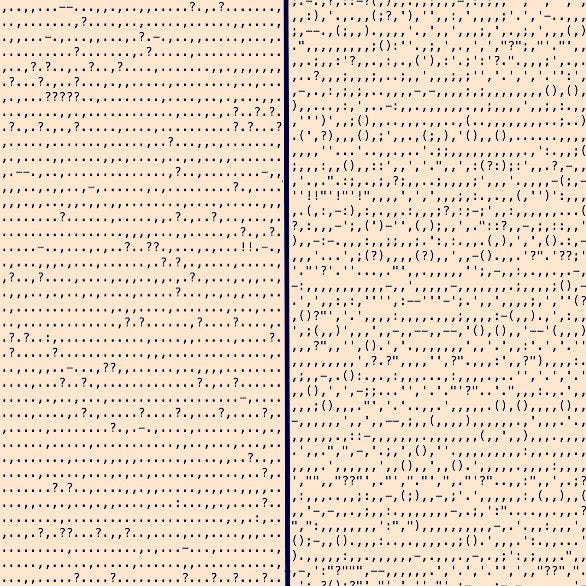
When we think of novels, of newspapers and blogs, we think of words. We easily forget the little suggestions pushed in between: the punctuation. But how can we be so cruel to such a fundamental part of writing?
Inspired by a series of posters, I wondered what did my favorite books look like without words. Can you tell them apart or are they all a-mush? In fact, they can be quite distinct. Take my all-time favorite book, Absalom, Absalom!by William Faulkner. It is dense prose stuffed with parentheticals. When placed next to a novel with more simplified prose — Blood Meridian, by Cormac McCarthy — it is a stark difference (see above).
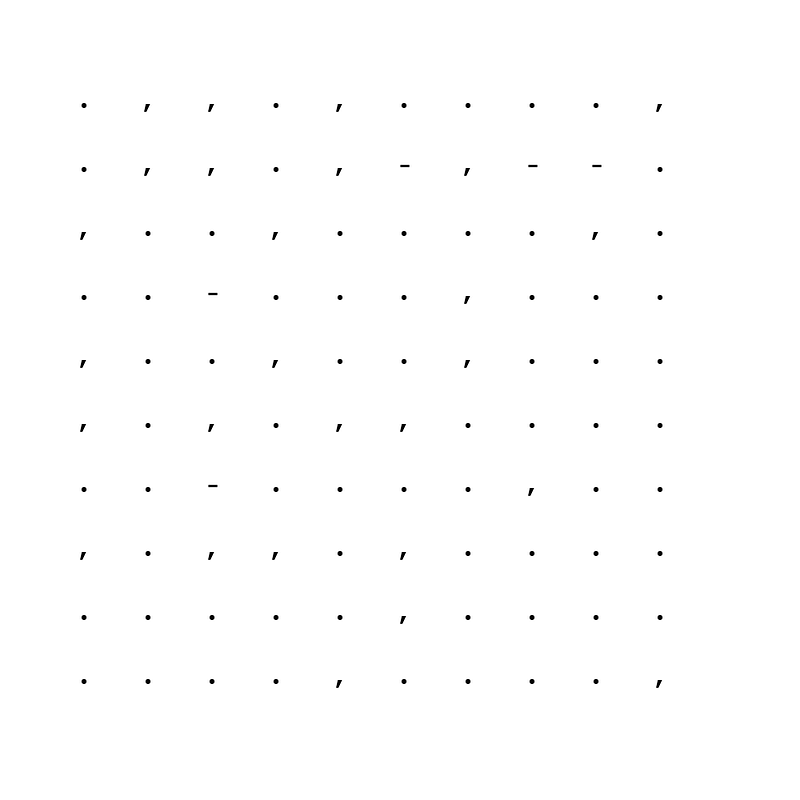
Yes, the contrast is stark. But the wild mix of symbols can be beautiful, too. Look at the array of dots and dashes above! This morse code is both meaningless and yet so meaningful. We can look and say: brief sentence; description; shorter description; action; action; action.
Want to see more? I have a few posters of books up on a page on my blog andthe code is freely available here. Why not print out all of the punctuation ofPride And Prejudice and cover your walls?
As I mentioned above, the difference between these novels is stark. Look at the contribution of each type of punctuation:
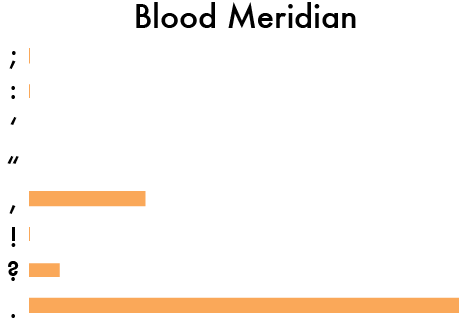
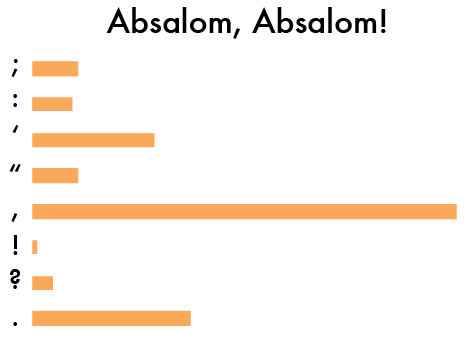
Blood Meridian is short sentences. A question or two? Maybe, but then more sentences. And yet Absalom, Absalom! is wild; moreover, one might say, it is statements, within statements, within statements: who doesn’t love that?
Here is a comparison of some other books — notice how large a break A Farewell To Arms was from the past. There almost no commas, just sentences, dialogue. How refreshing and wild that must have been! Look at how spartanBlood Meridian is compared to everything. Pay attention to the semicolons which seem to have disappeared from writing.
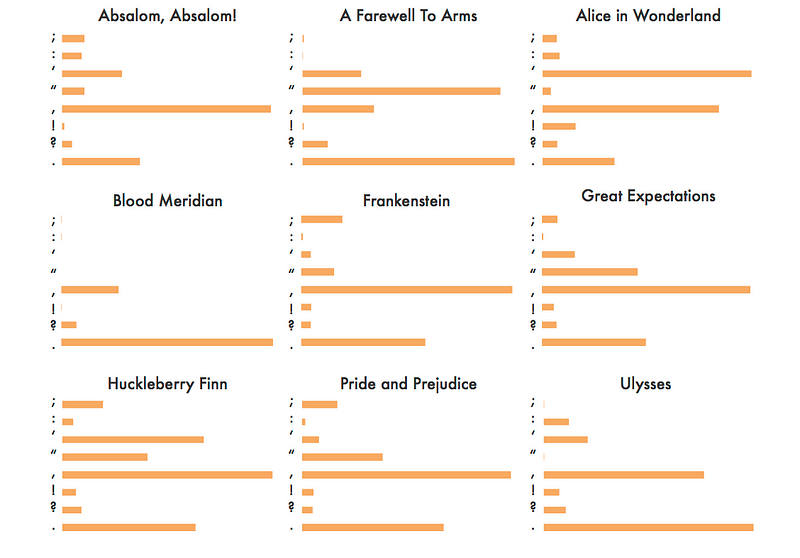
Punctuation does more than simply carve out a space for words. It separates them. Clearly, some authors are more okay with long rambling sentences than others. William Faulkner looks at your short sentences and says nothing less than fuck you.

And yet these sentences are made up of smaller clauses: Faulkner is not actually much of an outlier compared to other novels. The difference between a Hemingway and a McCarthy is the dispensation of quotation marks. When the warm, curling hands of the quotation is gone the reader is left with a broader sense of space.
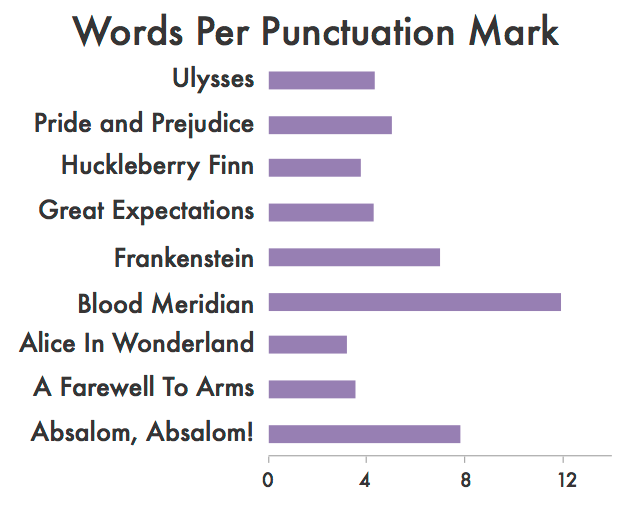
Writing can be beautiful because of the words an author chooses to use: but it can also be beautiful because of the choice of punctuation.
